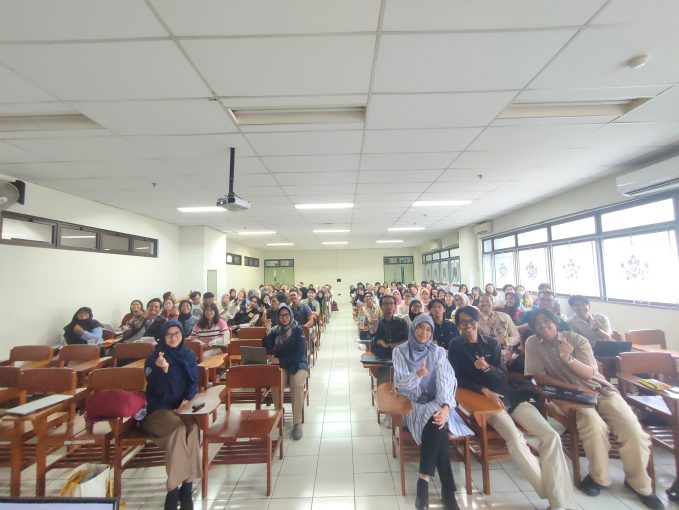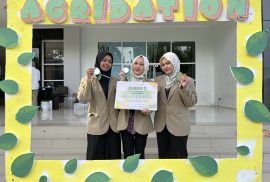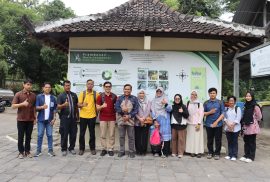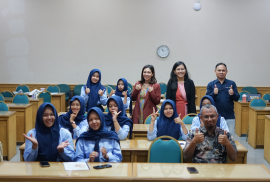
As part of the 2024 Program Kompetisi Kampus Merdeka, the Department of Food and Agricultural Product Technology at Universitas Gadjah Mada held a guest lecture series on October 16, October 30, and November 13, 2024. This session invited Dr. Ulfatun Nisa, M.Biotech., Head of the Pharmaceutical Production Unit (UPF) of Traditional Health Services (Yankestrad) in Tawangmangu. The lecture, titled “Functional Foods Based on Herbs and Spices,” was attended by undergraduate students enrolled in the Functional Food course.
In her opening remarks, Dr. Nisa introduced the concept of functional foods—foods that provide health benefits beyond their fundamental nutritional value. She emphasized the ancient Hippocratic principle: “Let food be thy medicine and medicine be thy food,” highlighting how food can serve not only as nourishment but also as a preventive tool to maintain long-term health. Functional foods, as she explained, can support the metabolic function of the human body and offer health benefits from their own natural components or specific processing methods.

Drawing from Indonesian food culture, Dr. Nisa cited examples of traditional herbal-based functional foods, such as beras kencur, temulawak, and sekoteng, as well as fermented products like jamu, tempe, and tape. Compared to synthetic drugs, natural-based functional foods tend to have fewer side effects when consumed appropriately. Although their effects are more gradual, they are generally safer and more sustainable for long-term health management.
Dr. Nisa also shared current research on herbal-based supplements for degenerative diseases, such as tempe-based supplements to reduce blood sugar levels, turmeric-based products to support growth, and the nutritional potential of moringa leaves. These studies reflect a growing scientific interest in local plants as sustainable health solutions.
The session also introduced students to the UPF Yankestrad facility in Tawangmangu, where medicinal plants such as chamomile, thyme, tempuyung, and echinacea are cultivated. Dr. Nisa explained the whole production process—from drying and sorting to washing, shape modification, wilting, oven-drying, packaging, and storage. Beyond producing herbal medicines, UPF also offers traditional and modern treatment services and operates a café that serves herbal-based drinks.
 In addition to the lecture, students had the opportunity to present their group projects on the design of functional food products, utilising herbs and spices as core ingredients. Dr. Nisa provided valuable feedback from a health practitioner’s perspective, offering insights into the intersection of food science, health, and herbal product development.
In addition to the lecture, students had the opportunity to present their group projects on the design of functional food products, utilising herbs and spices as core ingredients. Dr. Nisa provided valuable feedback from a health practitioner’s perspective, offering insights into the intersection of food science, health, and herbal product development.
The guest lecture emphasised the importance of sustainable use of local resources, aligning with the Sustainable Development Goals (SDGs)—specifically, Goal 3: Good Health and Well-being, and Goal 12: Responsible Consumption and Production. Promoting functional foods derived from herbs and spices supports public health, reduces reliance on chemical-based interventions, and encourages biodiversity conservation and responsible natural resource management for future generations.
Written by: Anisa Quentina




